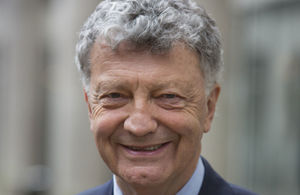I just want to pick out one rather odd, but somehow telling, detail from debates on this topic. Sarah Ditum’s thoughtful and wide ranging article on this issue touches on the dangers of legitimising ‘punching up’.
Embedded in the idea of justified abuse (which is then categorised as non-abusive, because justified) is the idea of “punching up”: aggression aimed at someone deemed “privileged” in comparison to the aggressor is seen as a legitimate expression of class fury. But not every oppressed class gets the same dispensation. As Phoebe Maltz Bovy has noted in her book The Perils of “Privilege”, both Jews and women – despite what one might think was incontrovertible evidence of oppression experienced by both groups over millennia – are seen as characterised by advantage, not disadvantage, in contemporary leftist discourse.
She also singles out for criticism the arguments used by Suze Marsupial, who argues that power dynamics completely change the significance of Corbynista-style abuse:
The asymmetries of power in the context of speech is a much more lucid framework for assessing rudeness vs abuse, name-calling vs slurs. It is the uneven power relations of the common ground of political communication, and the extent to which speakers construct them with reference to broader structural dynamics, that create real differences between ‘melt’ and ‘bitch’, between ‘slug’ as spoken to a politician, and ‘cockroach’ as said of millions of refugees. It is difficult to successfully argue this point in public, particularly when it is assumed that the left will always treat language for its own nefarious authoritarian purpose. It is noteworthy that the Corbynite slang is remarkably unproblematic in its derivation. Despite the irreverent laddishness of much of the current electoral left meme culture, these insults are neither gendered, racist, nor homophobic. What that might reveal about the power relations expressed in this new language has gone totally ignored.
You can read that piece here. This is part of Ditum’s response.
The fact that “slug” and “melt” sound essentially silly is a benefit: you’ve already got the jump on your opponent if they have to start out by trying to wrestle the conversation into seriousness. As Sartre wrote of anti-Semitism: “Never believe that anti‐Semites are completely unaware of the absurdity of their replies. They know that their remarks are frivolous, open to challenge. But they are amusing themselves, for it is their adversary who is obliged to use words responsibly, since he believes in words. The anti‐Semites have the right to play. They even like to play with discourse for, by giving ridiculous reasons, they discredit the seriousness of their interlocutors. They delight in acting in bad faith, since they seek not to persuade by sound argument but to intimidate and disconcert.”
Suze Marsupial mentions neither antisemitism nor Jews in her article. In the light of this omission – and given how central antisemitism has been to discussions of abuse on the left – it’s interesting to pause on one of her headings in the article.
Does that common Ground include me or is it just a sound?
This is a direct quotation from Lou Reed’s ‘Good Evening Mr Waldheim’, a powerful denunciation of antisemitism, including the antisemitism of Jesse Jackson and Farrakhan as well as of former Nazis. Suze Marsupial’s twitter account reveals an active concern with antisemitism, but there is something jarring to me about coopting the words of this song within a piece which makes no reference to Jews, and which implies that (perceived) power dynamics may shift the significance of abusive language, when one of the particular characteristics of antisemitism is the fact that (sometimes) it frames Jews as a group with overwhelming power. Lou Reed himself implies the difficulty involved in ‘punching down’, the way in which certain groups and individuals will be scrutinised more readily and searchingly (at least by those on the liberal/left).
Jesse you say Common Ground
Does that include the PLO?
…
If I ran for President
And once was a member of the Klan
Wouldn’t you call me on it
The way I call you on Farrakhan
It’s important not to forget, to quote Reed again, that ‘there are fears which still reverberate’.


